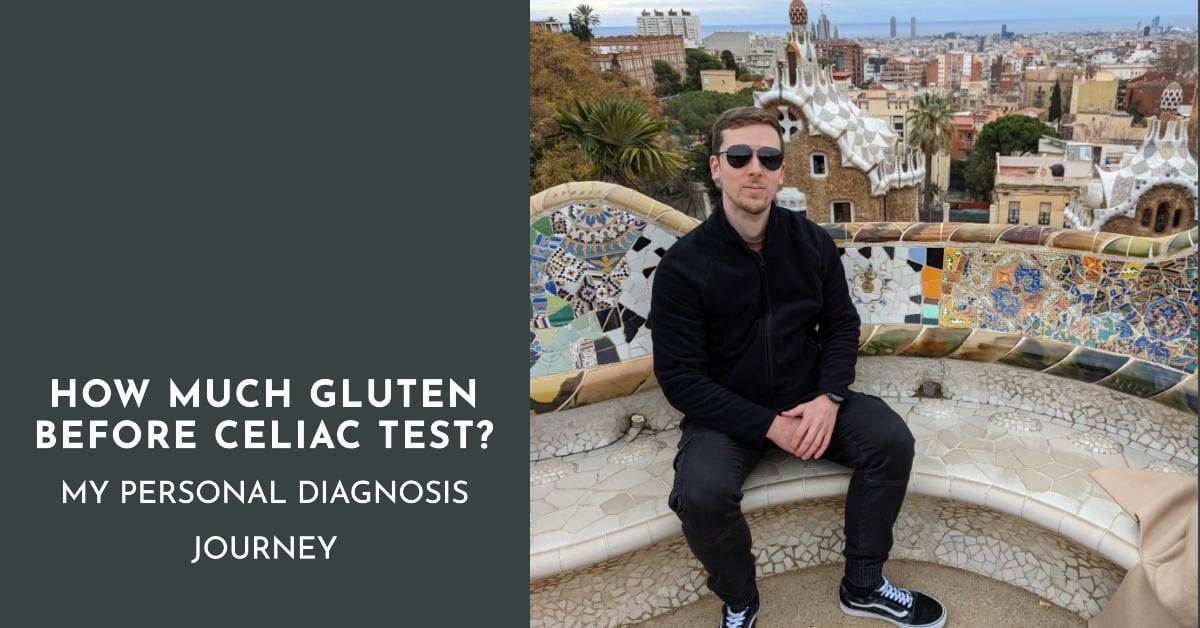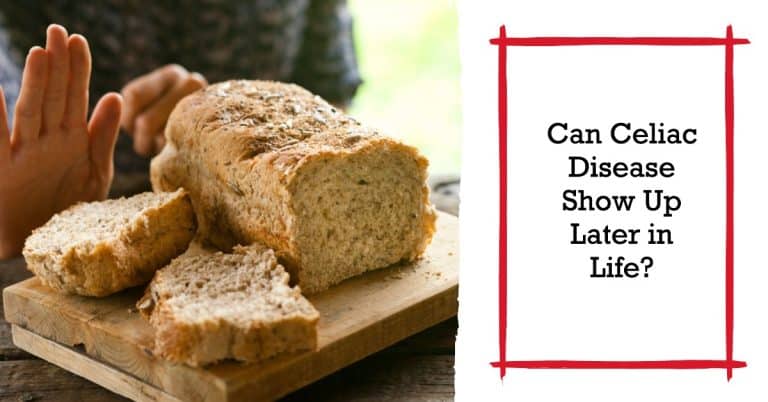How Much Gluten Should I Eat Before Celiac Test? My Diagnosis Journey

As someone who has gone through the process of being tested for celiac disease, I understand the anxiety and uncertainty that comes with preparing for the test.
One question that I had, and one that I know many others have, is: how much gluten should I eat before celiac test?
Based on expert recommendations, you should consume approximately 2 servings of gluten daily for 6-8 weeks prior to testing (approximately 2 slices of bread) [1].
But why is this important, and how does this affect the accuracy of the test results?
Keep reading to discover more about my personal experience and the science behind the gluten challenge.
My Celiac Testing Journey: The Importance of a Gluten Challenge
My journey to a celiac diagnosis began with unexplained gastrointestinal symptoms and countless trips to the doctor.
After some initial blood tests confirmed a marker for potential celiac disease, I was referred for an endoscopy and flexible sigmoidoscopy, which would involve a biopsy that could hopefully either confirm or rule out celiac disease.
After receiving my referral, I was asked to consume gluten for around 6-8 weeks prior to my hospital appointment, which is often referred to as the ‘gluten challenge’.
In my case, the results appeared that I ‘could have’ celiac disease. Ultimately, this meant a further two trips to the hospital after following the gluten-free diet on and off for months.
I certainly wasn’t satisfied with a ‘maybe’. So, after a further two hospital trips (throughout the pandemic, might I add), I finally received a diagnosis of celiac disease, along with IBS mixed.
Sure, developing celiac disease later in life is never ideal (I didn’t even know was possible, especially as none of my first-degree relatives has it).
But, at least I could finally begin to learn all the ins and outs of the gluten-free diet and seek advice from medical professionals such as dieticians as well as other people with celiac disease.
The Gluten Challenge: What It Is and Why It Matters
A gluten challenge involves intentionally consuming gluten-containing foods, such as bread, pasta, and pizza, for a specified period before testing for celiac disease.
Consuming gluten prior to a celiac test is crucial because it looks for antibodies produced by the body when consuming gluten. If there is no gluten in the diet, the immune system will not produce these antibodies, usually resulting in a false negative test result.
My gluten challenge lasted for six weeks, during which I ate gluten-containing foods daily. This was difficult, as I experienced an increase in symptoms, but it was necessary to ensure accurate test results.
Understanding the Science: How Much Gluten and How Long Before the Test?
As mentioned earlier, experts recommend consuming approximately 2 servings of gluten, equivalent to 2 slices of wheat-based bread, daily for up to three months before they get tested.
This recommendation comes from the University of Chicago Celiac Disease Center, which explains that this amount of gluten consumption is necessary for the body to produce sufficient antibodies that can be detected in blood tests.
The timeframe mentioned above is based on research that has shown it takes this long for most people to develop an immune response to gluten that can be detected in tests.
However, it’s important to note that individual responses can vary, and some people may require a longer or shorter period of not following a gluten free diet.
The Role of Blood Tests and Endoscopy in Celiac Diagnosis
Blood tests for celiac disease, such as the tTG-IgA test, look for specific antibodies that indicate an immune response to gluten.
An endoscopy, during which a gastroenterologist collects tissue samples from the small intestine, is the gold standard for diagnosing celiac disease.
My experience with celiac testing involved multiple inconclusive blood tests and an endoscopy, ultimately leading to a private consultation and a final, definitive diagnosis.
Lessons Learned: The Importance of Proper Testing Preparation
My journey to being diagnosed with celiac disease was long and filled with uncertainty. However, I learned valuable lessons about the importance of a gluten challenge and proper testing preparation.
When you eat gluten before your celiac test, you can help ensure accurate results and avoid the frustration of false negatives.
If you’re considering a celiac test or your doctor has recommended you get one, remember to continue eating gluten-containing foods until all testing is complete.
It’s far from easy, especially if you’re experiencing symptoms as I did, but it’s essential for accurate results and a correct diagnosis.
Also Read:
- How I Knew I Had Celiac Disease
- Can Gluten Cause Anxiety?
- Does Gluten Cause Constipation?
- What Does Gluten Do to Your Gut?
How Much Gluten Should I Eat Before Celiac Test? – Final Thoughts
Understanding the importance of a gluten challenge and the recommended amount of gluten ingestion before a celiac test is crucial for those seeking a diagnosis.
My personal experience as someone with celiac disease has shown that proper preparation and persistence can lead to accurate results and, ultimately, a better understanding of your health.
References
FAQs
What were my early celiac disease signs?
I experienced several symptoms associated with celiac disease before my diagnosis, which included gastrointestinal issues, fatigue, and anxiety before my celiac disease screening involving antibody tests, 2x endoscopy scans, a flexible sigmoidoscopy, and finally, a colonoscopy to check there was nothing more sinister occurring in my body.
How accurate are at-home celiac tests?
At-home tests can be inaccurate and produce false negatives and shouldn’t be used as a be-all, end-all solution.
A healthcare specialist will provide comprehensive screening for a definitive diagnosis. It’s far better to stick with the professionals instead of trying to self-diagnose celiac disease, gluten sensitivity, or otherwise.
Was my gluten challenge safe?
Under medical guidance, I was told gluten should be consumed for at least 6 weeks to ensure accurate test results.
It temporarily worsened my symptoms, and there’s every chance it could do the same for you if you have to undergo a gluten challenge.
What is a celiac disease blood test?
The celiac blood test, like the tTg IGA test, measures specific antibodies to diagnose celiac disease. Further testing, like endoscopy and biopsy, may be needed for a definitive diagnosis.
Why did I need a celiac disease blood test?
The blood test was essential for determining if I had celiac disease and recommending further testing, preventing long-term complications and improving my quality of life. Celiac disease is an autoimmune condition, after all – so it needs to be taken seriously.
What else should I know about celiac disease testing?
Make sure you perform a gluten challenge before testing for celiac disease to avoid false-negative results. Genetic tests, like HLA-DQ2 and DQ8, can determine risk but not diagnose celiac disease.
How did I change my diet after my celiac diagnosis?
I adopted a strict gluten-free diet, eliminating wheat, barley, and rye, and avoiding cross-contamination to manage symptoms and reduce complications related to celiac disease. It wasn’t easy having to continue to eat gluten during testing, but in the end, it was ‘short-term pain for long-term gain’.
Disclaimer: This content is based on my personal experience as an individual diagnosed with celiac disease and IBS (Irritable Bowel Syndrome) who follows a strict gluten-free diet. This does not constitute medical advice. Please consult a medical professional, nutritionist, or qualified dietitian for personalized, professional advice.


